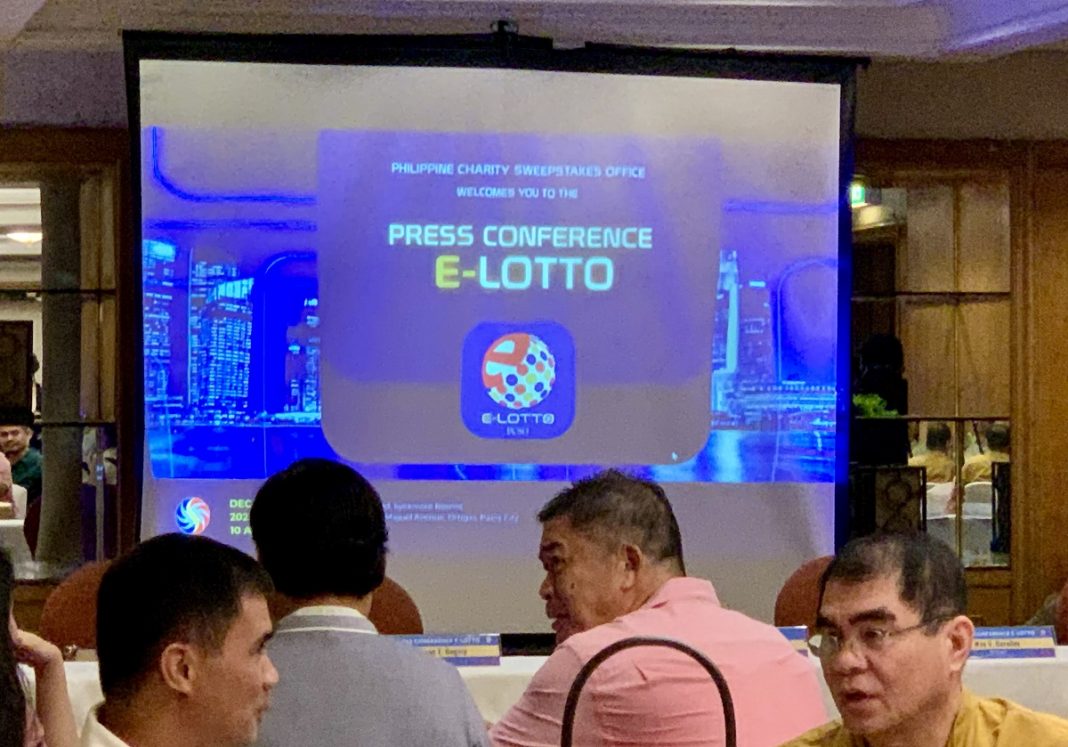The Philippine Charity Sweepstakes Office (PCSO) has announced the first ever lotto winner who bought a ticket through the newly launched E-Lotto system.
The lone bettor won the jackpot prize of P698,806,269.20 in the GrandLotto 6/55 after picking the right number combination 24-50-52-09-51-03. The draw was conducted on Wednesday, Jan. 17.
The huge pot was second highest jackpot won by a single winner ever in the counrty’s lotto history. The highest was P741 million won by New York- based Filipino who was on vacation when he bought a lotto ticket in Olongapo in 2010.
According to PCSO assistant general manager Arnel Casas, as of Jan. 15, a total of 126,429 has opened their E-Lotto accounts.
It was only last Dec. 15 that the PCSO launched the test run of its E-Lotto online betting platform. The E-Lotto, which is a digital version of the traditional lottery games, is initially available on the Web via the PCSO website. The Android and iOS apps are expected to become available early next year.
“E-Lotto is a significant milestone for PCSO as we embrace the digital era and cater to the evolving needs of our players,” stated PCSO general manager Mel Robles during the launch.
“With E-Lotto, players can now conveniently place bets, choose their lucky numbers, and win cash prizes from the comfort of their own homes.”
During the trial run, which will last for one year, players can already place bets online and also receive payments for their winnings electronically through their e-wallets. However, for prizes above P300,000, the winning bettor has to claim it at the PCSO main office in Mandaluyong City.
To register, bettors need to undergo identity and age verification. They also need to have a GCash account although the PCSO said negotiations are underway to introduce additional third-party gateway payments such as banks and other e-wallet providers.
PCSO officials stressed that only Filipinos and foreigners residing in the Philippines are allowed to participate in E-Lotto. Filipinos who are based abroad like OFWs (overseas Filipino workers) can also bet online as long as they have Philippine-government issued ID cards and SIM cards issued by local telcos.
Asked if the E-Lotto may eat up the revenues of existing lotto outlets, Robles said the experience of other lotto operators in other countries has shown that the bigger pot enabled by online betting has not affected the profits of physical outlets. It has, in fact, pulled more people to place their bets in the outlets or online, he added.
“As you can see, online e-commerce shops have proliferated but shopping malls such as SM are still there,” he said.
Robles said that as of now, only 2 percent of the local population is betting in physical outlets. He said that if this will increase to even just 30 or 50 percent, the PCSO could offer bigger winnings on a more frequent basis.
Right now, the PCSO said the draw dates will remain the same with the E-Lotto just becoming an additional mode of betting for the traditional lotto.
The trial run of E-Lotto will be operated by local firm Pacific Online Systems Corporation (POSC), which signed last year a memorandum of agreement with PCSO.
According to the PCSO, there were three proponents who expressed their interest in the project but picked POSC since it “has the capability, readily available systems, and compliance with the required technical guidelines.”
The POSC, a company owned by businessman Willy Ocier, will act as the exclusive agent during the one-year test run. It did not charge the government for the online system but will earn from the 14% commission it will charge of every bet coursed through online.
The contractor has assured that the backend system is attack-proof and has undergone stringent vulnerability testing with cybersecurity firms and the Department of Information and Communications Technology.
It also said that the registration process creates multiple layers of identity verification, making it significantly challenging for minors to bypass the system. The system can also suspend and perpetually block an account if any misrepresentation is found on the player’s part.




